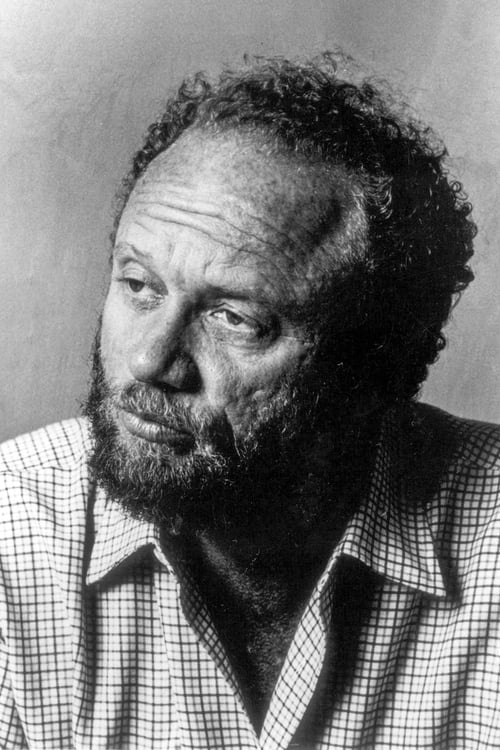
Leon Hirszman
出生 : 1937-11-22, Rio de Janeiro, Rio de Janeiro, Brazil
死亡 : 1987-09-15
略歴
Leon Hirszman was a Brazilian filmmaker, one of the main figures of the Brazilian Cinema Novo movement. His first short film, Pedreira de São Diogo, was one of the five segments of Cinco Vezes Favela, an important film for New Cinema released in 1962. His first full-lenght motion picture was an adaptation of playwright Nelson Rodrigues' A Falecida (The Deceased). The film already spoke on a subject dear to Leon: the social alienation of the working class. Working both with documentaries and fictional narratives, among Leon's body of work are the documentaries Nelson Cavaquinho, Megalópolis, Ecologia and Sexta-feira da Paixão, Sábado de aleluia. In 1971, he releases São Bernardo, a work of fiction based off Graciliano Ramos' eponymous book. He was also responsible for films such as Cantos do Trabalho no Campo, Que País É Esse?, Rio, Carnaval da Vida and ABC da Greve. For his 1981 film Eles Não Usam Black Tie (They Don't Wear Black Tie), the 1981 Venice Film Festival gave him three awards (it was also nominated for the Golden Lion). The film was also nominated for the Great Prize Coral Negro on the 3rd Festival Internacional do Novo Cinema Latino-Americano; Great Prize on the Festival dos Três Continentes, and the Espiga de Oro on the Festival Internacional de Vallodolid. At last, it was also nominated for the Air France Prize in 1982. Leon Hirszman had an extremely important role on Brazilian cinema and left behind a great number of articles in which he proposes a number of reflections on the conditions for filmmaking in Brazil, its market and legislation, Embrafilme (then an Federal institution responsible for aiding filmmaking in Brazil), and politic cinema. Leon died from complications of HIV, after a year of treatment. He got the virus from a blood transfusion and left behind three children: Irma, Maria and João Pedro, and his spouse, Cláudia Fares Menhem.

Self - Filmmaker (archive footage)
A deep investigation, in the way of a poetic essay, on one of the main Latin American movements in cinema, analyzed via the thoughts of its main authors, who invented, in the early 1960s, a new way of making movies in Brazil, with a political attitude, always near to people's problems, that combined art and revolution.

Ele mesmo

Director

Director
Between August 23 and 31, 1983, at the "Circo Massimo", in Rome, there was a musical event that brought together artists from Bahia. This film brings a recording of the event, also featuring backstage, rehearsals, testimonies and some relaxing moments of these great names in Bahia's music.

Self (uncredited)
ABC of a Strike captures the 1979 metal workers strikes outside of São Paulo. The footage sat untouched until after the death of highly-regarded director Leon Hirszman in 1987, by which time the material had a new relevance. The gripping film captures the negotiations between the labor unions and the factory bosses and shows the birth of the region’s Worker’s Party, as well as the emergence of its charismatic leader, Luiz Inácio Lula da Silva. Rising from extreme poverty, Lula gained national prominence as a union activist during the late 70s and early 80s. After being jailed during his time as a union leader, he eventually becomes Brazil’s president from 2003 to 2010.

Director
ABC of a Strike captures the 1979 metal workers strikes outside of São Paulo. The footage sat untouched until after the death of highly-regarded director Leon Hirszman in 1987, by which time the material had a new relevance. The gripping film captures the negotiations between the labor unions and the factory bosses and shows the birth of the region’s Worker’s Party, as well as the emergence of its charismatic leader, Luiz Inácio Lula da Silva. Rising from extreme poverty, Lula gained national prominence as a union activist during the late 70s and early 80s. After being jailed during his time as a union leader, he eventually becomes Brazil’s president from 2003 to 2010.

Writer

Director
Part 1 of the "Images of the Unconscious" documental series.

Director

Director
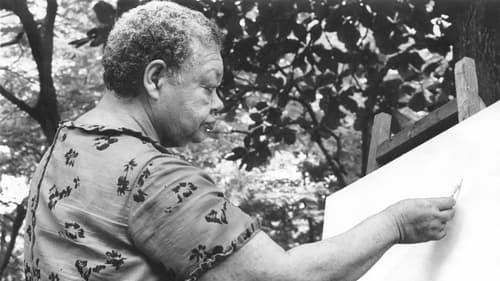
Screenplay
In hopes of unraveling the causes and cure for various forms of insanity, a psychiatrist in Brazil created the Museum of Images from the Unconscious in 1952. It gathered paintings and drawings made by mental patients from all over Brazil. Many of the works in the museum are paired with the case-histories of the patients who created them in this fascinating film.

Director
In hopes of unraveling the causes and cure for various forms of insanity, a psychiatrist in Brazil created the Museum of Images from the Unconscious in 1952. It gathered paintings and drawings made by mental patients from all over Brazil. Many of the works in the museum are paired with the case-histories of the patients who created them in this fascinating film.
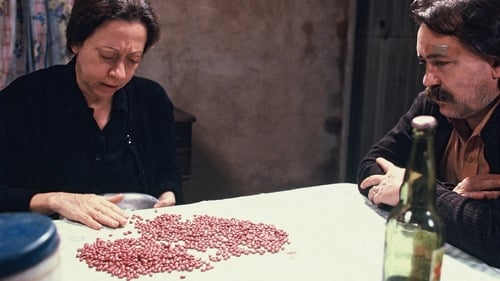
Screenplay
Otavio is an idealistic union leader trying to organize workers at a factory to resist the company's exploitative practices. His son, Tião, one of the employees, is more of a realist and doesn't want to risk losing his job by striking. This clash of perspectives puts the father and son at odds. Fortunately, Tião's mother, Romana, is on hand to act as a moderator between the two opinionated men.

Director
Otavio is an idealistic union leader trying to organize workers at a factory to resist the company's exploitative practices. His son, Tião, one of the employees, is more of a realist and doesn't want to risk losing his job by striking. This clash of perspectives puts the father and son at odds. Fortunately, Tião's mother, Romana, is on hand to act as a moderator between the two opinionated men.

Director
Didactic documentary on the History of Brazil

Producer
The history of Partido-Alto, a musical subgenre derived from Samba, with roots in the batucada of Bahia.

Director
The history of Partido-Alto, a musical subgenre derived from Samba, with roots in the batucada of Bahia.

Director
Between 1974 and 1976, while researching for his filme "S. Bernardo", Leon Hirszman shot three documentary shorts produced by the Brazilian Ministry of Education on the chores of the men who worked in the sugar cane fields in the town of Feira de Santana, in the cocoa fields of Itabuna, and in the efforts of building households in Chã Preta.

Director
Between 1974 and 1976, while researching for his filme "S. Bernardo", Leon Hirszman shot three documentary shorts produced by the Brazilian Ministry of Education on the chores of the men who worked in the sugar cane fields in the town of Feira de Santana, in the cocoa fields of Itabuna, and in the efforts of building households in Chã Preta.

Director of Photography

Writer

Producer
Between 1974 and 1976, while researching for his filme "S. Bernardo", Leon Hirszman shot three documentary shorts produced by the Brazilian Ministry of Education on the chores of the men who worked in the sugar cane fields in the town of Feira de Santana, in the cocoa fields of Itabuna, and in the efforts of building households in Chã Preta.

Director
Between 1974 and 1976, while researching for his filme "S. Bernardo", Leon Hirszman shot three documentary shorts produced by the Brazilian Ministry of Education on the chores of the men who worked in the sugar cane fields in the town of Feira de Santana, in the cocoa fields of Itabuna, and in the efforts of building households in Chã Preta.

Director

Director
This film denounces the exploitation of natural resources by certain industries of extraction and transformation. This documentary is considered as the first Brazilian film on this theme.

Director
An analysis of the phenomenon of accelerated urbanization in Brazil, and more particularly in Rio de Janeiro and Sao Paulo.
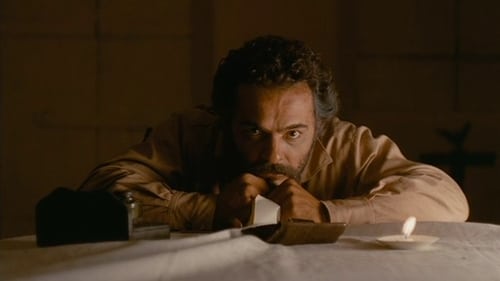
Writer
The story of Paulo Honório, a poor ploughman who becomes a rich farmer. Obsessed by his desire to get even richer, he doesn't pay much attention to his wife, Madalena, a teacher who reacts against his tyrannical ways.

Director
The story of Paulo Honório, a poor ploughman who becomes a rich farmer. Obsessed by his desire to get even richer, he doesn't pay much attention to his wife, Madalena, a teacher who reacts against his tyrannical ways.

Executive Producer
A gang of bandits led by Faustão intervene in a fight between two members of rival families, the Pereiras and the Araújos. Henrique Pereira, son of Colonel Pereira, is wounded in an ambush. Faustão rescues him and demands the father to pay a ransom in exchange for the life of his son. The bandit makes it clear to Henrique that he is not a prisoner and that he is only obeying the law of the backlands. Lucena, a henchman working for the Araújos, finds Faustão and offers twice the amount being asked to the colonel in order to take Henrique as a prisoner, but the bandit refuses the offer. Colonel Henrique pays the ransom, but the son refuses to return home, even being aware of the feud between his family and the Araújos. The young man chooses to join the gang.

Executive Producer

Director
Film in four segments: "Colagem", "Balanço", "Bandeira Zero" and "Sexta-Feira da Paixão, Sábado de Aleluia", having in common a strongly allegorical and gross protest tone in the approach of its subjects.

Director
A short film of lovely poetic, observational elements and interviews with the famed samba singer/songwriter Nelson Antônio da Silva, whose adopted last name ‘Cavaquinho’ refers to the small guitar-like instrument that he played and used to compose his songs.

Story
Chronicles the life of a 17 year-old girl living in the upper-class Rio de Janeiro neighbourhood of Ipanema. Márcia lives a life of parties and spend her days among bohemians, musicians and intellectuals. While seeming happy in the outside, she's extremely anguished inside. Based on the famous song by Antonio Carlos Jobim and Vinicius de Moraes.

Producer
Chronicles the life of a 17 year-old girl living in the upper-class Rio de Janeiro neighbourhood of Ipanema. Márcia lives a life of parties and spend her days among bohemians, musicians and intellectuals. While seeming happy in the outside, she's extremely anguished inside. Based on the famous song by Antonio Carlos Jobim and Vinicius de Moraes.

Screenplay
Chronicles the life of a 17 year-old girl living in the upper-class Rio de Janeiro neighbourhood of Ipanema. Márcia lives a life of parties and spend her days among bohemians, musicians and intellectuals. While seeming happy in the outside, she's extremely anguished inside. Based on the famous song by Antonio Carlos Jobim and Vinicius de Moraes.

Director
Chronicles the life of a 17 year-old girl living in the upper-class Rio de Janeiro neighbourhood of Ipanema. Márcia lives a life of parties and spend her days among bohemians, musicians and intellectuals. While seeming happy in the outside, she's extremely anguished inside. Based on the famous song by Antonio Carlos Jobim and Vinicius de Moraes.

Originally produced for German TV, Improvised and Purposeful is a firsthand look at the "Cinema Novo" movement (otherwise known as the 'Brazilian New Wave'). Director Joaquim Pedro de Andrade focuses on six Cinema Novo filmmakers working in Rio in 1967.
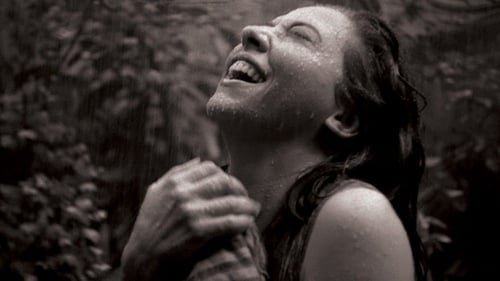
Writer
After visiting a fortune teller, Zulmira is informed that a blonde woman will threaten her peace. After talking to her husband Toninho, she suspects that her cousin Glorinha may be that blonde. In poor health, Zulmira makes all the preparations for the day of her death and asks her unemployed husband to deal with the costs of the coffin and funeral with a man named João Guimarães Pimentel. What Tom doesn't know is that Zulmira and this man hide some secrets that he could never imagine.

Director
After visiting a fortune teller, Zulmira is informed that a blonde woman will threaten her peace. After talking to her husband Toninho, she suspects that her cousin Glorinha may be that blonde. In poor health, Zulmira makes all the preparations for the day of her death and asks her unemployed husband to deal with the costs of the coffin and funeral with a man named João Guimarães Pimentel. What Tom doesn't know is that Zulmira and this man hide some secrets that he could never imagine.

Writer
Statistics, interviews and historical information on illiteracy and inequality in land distribution in Brazil's countryside.

Director
Statistics, interviews and historical information on illiteracy and inequality in land distribution in Brazil's countryside.

Producer
Documentary about the history of Jornal do Brasil, founded on April 14, 1891. In 1965, the Jornal do Brasil marked its innovative and active position, as recorded in the documentary "A Seventv-Four- Year-Old Fellow" by the filmmaker Nelson Pereira dos Santos, and the story itself was in charge of confirming. In the following years, the newspaper would witness the most remarkable events of the second half of the twentieth century in Brazil and in the world. It would applaud the democratic struggles and independence of peoples, support social demonstrations against oppression and justice at all levels. Tirelessly, he did not hesitate to report the truth of the facts, regardless of the circumstances in which they presented themselves.

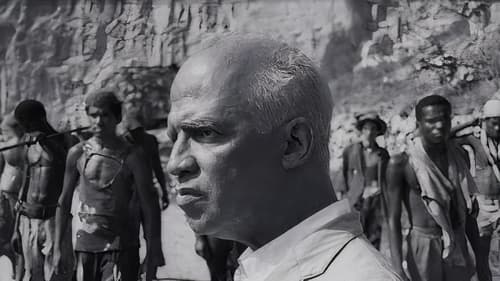
Story
Men work in a quarry on the edge of a hill where a slum is located, of which they are residents. The slope is blown up, advancing to the land near the shacks. Slum dwellers are warned that new explosions can cause damage. The community decides to place itself on the slope, preventing another explosion; without attitude, the foreman gives up on blowing up the hill.

Director
Men work in a quarry on the edge of a hill where a slum is located, of which they are residents. The slope is blown up, advancing to the land near the shacks. Slum dwellers are warned that new explosions can cause damage. The community decides to place itself on the slope, preventing another explosion; without attitude, the foreman gives up on blowing up the hill.

Screenplay
Men work in a quarry on the edge of a hill where a slum is located, of which they are residents. The slope is blown up, advancing to the land near the shacks. Slum dwellers are warned that new explosions can cause damage. The community decides to place itself on the slope, preventing another explosion; without attitude, the foreman gives up on blowing up the hill.
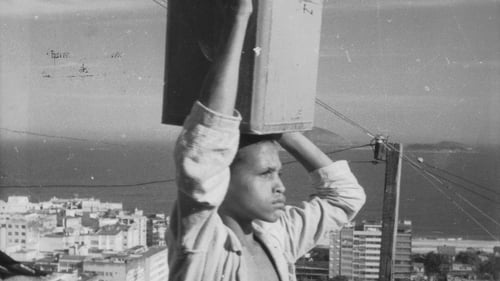
Producer
Five segments about the hardships faced by people living in slums on hills in Rio de Janeiro.

Writer
Five segments about the hardships faced by people living in slums on hills in Rio de Janeiro.

Director
Five segments about the hardships faced by people living in slums on hills in Rio de Janeiro.











